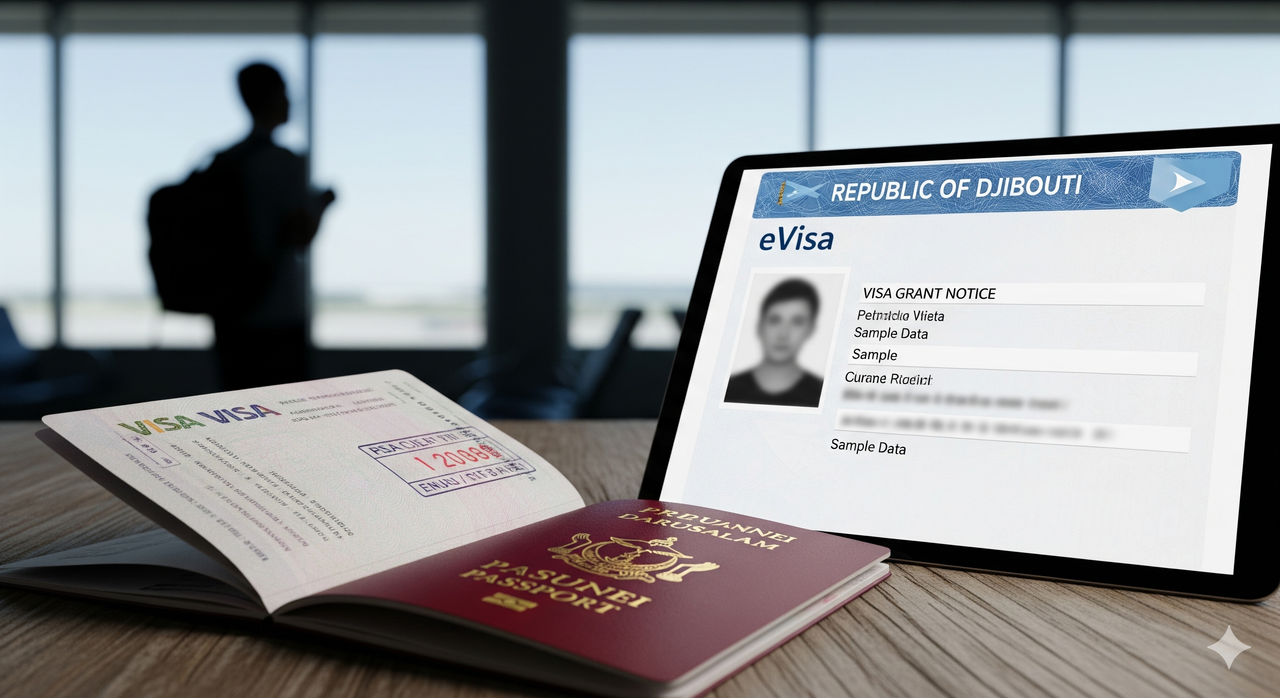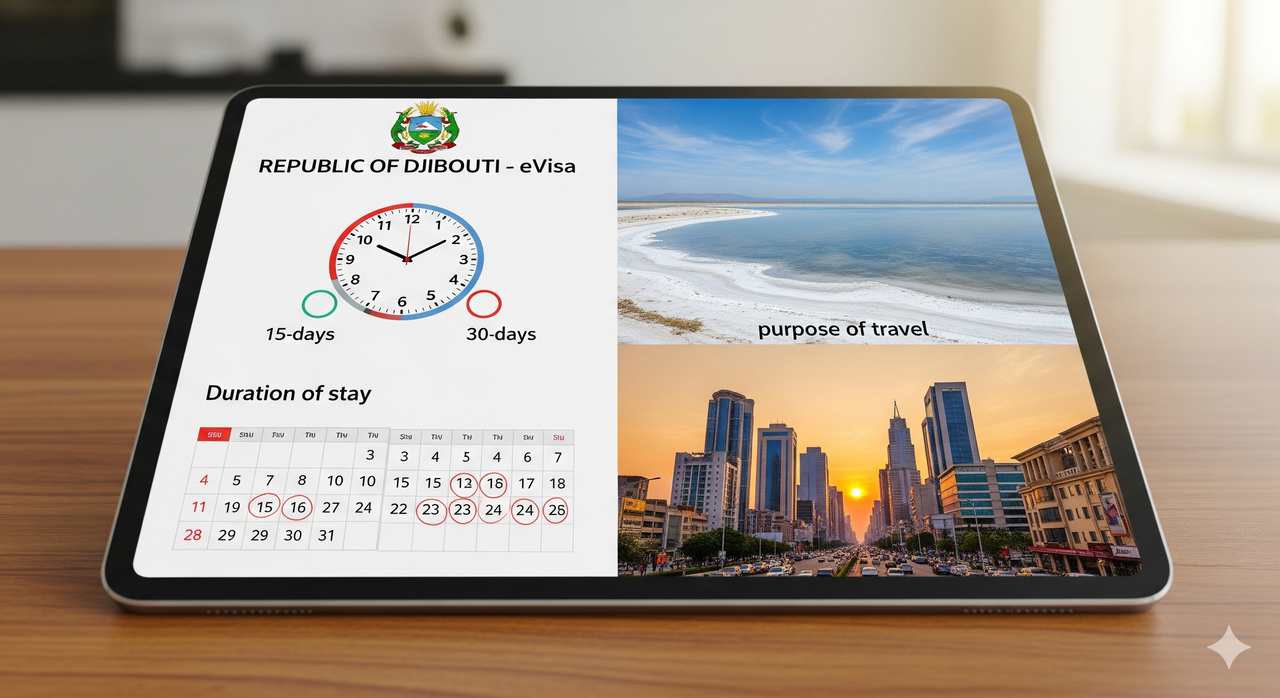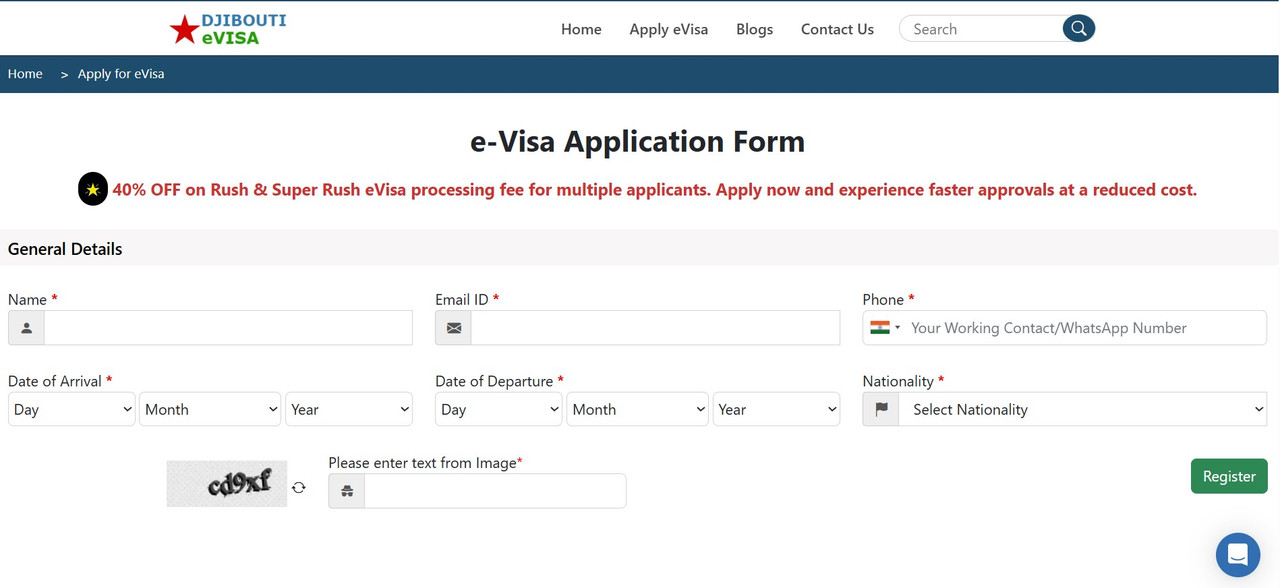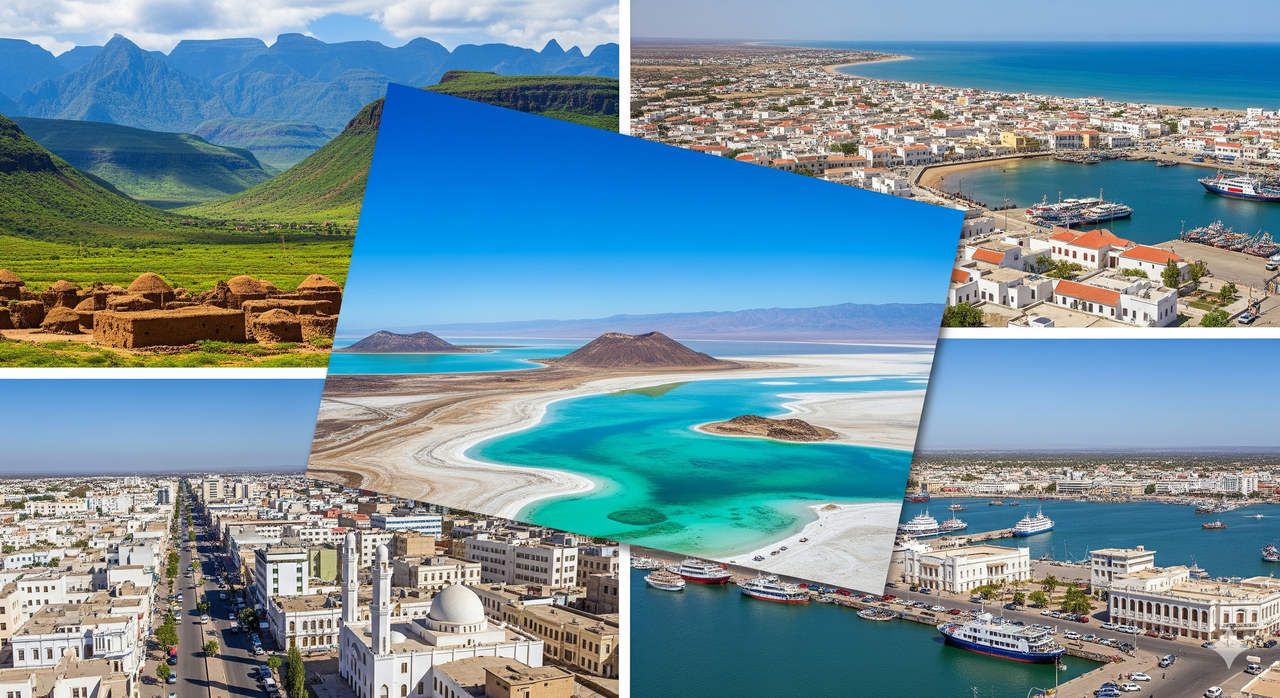Traveling to the Horn of Africa and experiencing Djibouti’s unique blend of cultures, landscapes, and history is an exciting adventure, but before you go, it’s important to understand the travel requirements. One of the most convenient ways for Brunei nationals to visit Djibouti is by applying for the Djibouti eVisa. This electronic visa system has made the visa application process much simpler and faster, allowing travelers to focus on their trip rather than dealing with long embassy lines. In this post, we’ll break down everything you need to know about the Djibouti eVisa for Brunei nationals—from the application process to the best places to visit in this beautiful country.
Do You Need an eVisa for Djibouti?
Yes, the citizens of Brunei must possess a valid visa in order to access Djibouti. Djibouti has good news in that tourists have a system of eVisas and this system is offered to the citizens of most countries, and Brunei does not remain an exception. eVisa will enable you to travel into the country to visit the country as a tourist, business or in transit.

The eVisa is a fast and convenient method of acquiring a travel authorization and you do not need to attend an embassy or a consulate. All you need is to apply online, support your documents and once you are approved, you will get your visa electronically.
Types of Tourist eVisa for Djibouti
Exploring Djibouti is easier with the Djibouti Tourist eVisa, allowing travelers to apply online. Just provide valid documents, travel details, and passport information to enjoy a smooth entry and memorable trip. Djibouti has various kinds of e-visas according to your duration of stay and the reason. The following are the principal categories of tourist eVisa that the citizens of Brunei can apply for:

Step-by-Step Guide to Applying for the Djibouti eVisa
Applying for an eVisa to Djibouti is a straightforward process. Here’s a step-by-step guide to help you navigate the application:
Step 1: Choose Your Visa Type
Select the type of eVisa you wish to apply for (Only single-entry or transit visa). Be sure to choose the visa that best suits the purpose and length of your trip.
Step 2: Fill Out the Application Form
When filling out the Djibouti e-Visa Application Form, you will be asked for basic information such as your full name, nationality, passport details, intended date of arrival, and details of your stay. You’ll also need to provide your contact information and your travel itinerary, including flight and hotel details.

Step 3: Upload Documents
You’ll need to upload a scanned copy of your passport’s bio page (ensure that the passport is valid for at least six months from your arrival date), a passport-sized photograph, and any other documents required based on your visa type. For example, if you’re applying for a transit visa, you might be asked for proof of onward travel.
Step 4: Pay the Visa Fee
Once you’ve filled out the form and uploaded the required documents, you will need to pay the visa fee online using a credit or debit card. The fee varies depending on the visa type, but it is generally affordable.
Step 5: Wait for Approval
After submitting your application, the Djibouti immigration authorities will review it. Most applications are processed within 4 -7 working days. In some cases, it may take longer, so it’s always best to apply well in advance of your planned trip.
Step 6: Receive Your eVisa
Once your eVisa is approved, you will receive it via email. Be sure to print out a copy of the eVisa to present upon arrival in Djibouti. Immigration officials will verify your visa, and you’ll be good to go!
Travel Tips for Djibouti
Although Djibouti may not be as popular as certain other African destinations, it will provide its visitors with a one-of-a-kind of experience. Below are travel tips that will enable you to maximize your trip.

1. Weather and Climate
Djibouti is hot desert climate, as the temperatures are frequently higher than 30 C (86 F) all the year round. Visiting is most suitable in the cooler months and this is between November and February. Don’t forget to drink water and keep your skin covered with sunscreen, the sun can be so strong.
2. Currency and Payments
The currency of Djibouti is the Djiboutian franc (DJF), but international currencies like the U.S. dollars and euros are also highly accepted in popular tourist destinations. Most hotels and larger business accept credit cards, but it is always a good idea to have a small amount of cash to pay in small businesses.
3. Language
There are official languages of French and Arabic, though English is very popular in the majority of tourist spots. Always good to learn some simple phrases in French or Arabic to have a better experience in traveling.
4. Health and Safety
Generally, Djibouti is safe as a tourist destination, but this is the reason why you should exercise caution when taking on precautions like not drinking tap water and being cautious with your valuables in places where many people are. Also ensure you have had the regular vaccinations and also think of taking travel health insurance.
Famous Places to Visit in Djibouti
- Lake Assal: One of the lowest points on Earth, Lake Assal is a stunning saltwater lake surrounded by dramatic volcanic landscapes.
- The Goda Mountains: For a scenic adventure, hike through the Goda Mountains and enjoy breathtaking views of the surrounding desert.
- Tadjoura: A charming coastal town with a rich cultural history, perfect for those looking to experience local life.
- Djibouti City: The capital city offers a blend of modernity and tradition, with markets, museums, and beautiful coastline.

Food and Culture
The food scene in Djibouti is diverse as the country has an African, Arab, and French background. You will also have a taste of different delicacies like camel meat kebabs, fish stews and hummus. You mustn’t miss the opportunity to sample the local coffee which is thick and tasty and usually accompanied by sweet pastry.
Djibouti has a warm and friendly culture and high levels of hospitality. The Djiboutian people are warm and hospitable whether you are visiting some of their local markets or talking with a guide.

FAQs about the Djibouti eVisa for Brunei Nationals
1. How long does it take to process the Djibouti eVisa?
The processing time for a Djibouti eVisa is typically 4 business days, though it can sometimes take longer, up to 7 business days, depending on the application’s accuracy and completeness.
2. Can I extend my Djibouti eVisa?
No, generally, you cannot extend a Djibouti eVisa once you are in the country.
3. Is the Djibouti eVisa valid for multiple entries?
No, the standard Djibouti eVisa is for a single entry only.
4. Can I apply for the Djibouti eVisa on arrival?
No, in most cases, you cannot apply for a Djibouti visa on arrival. Ensure you have your eVisa ready before traveling.